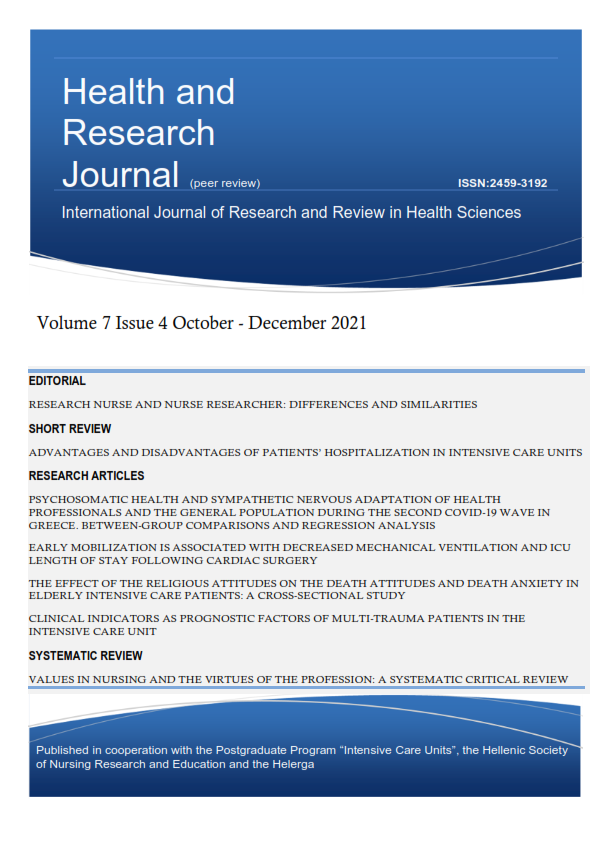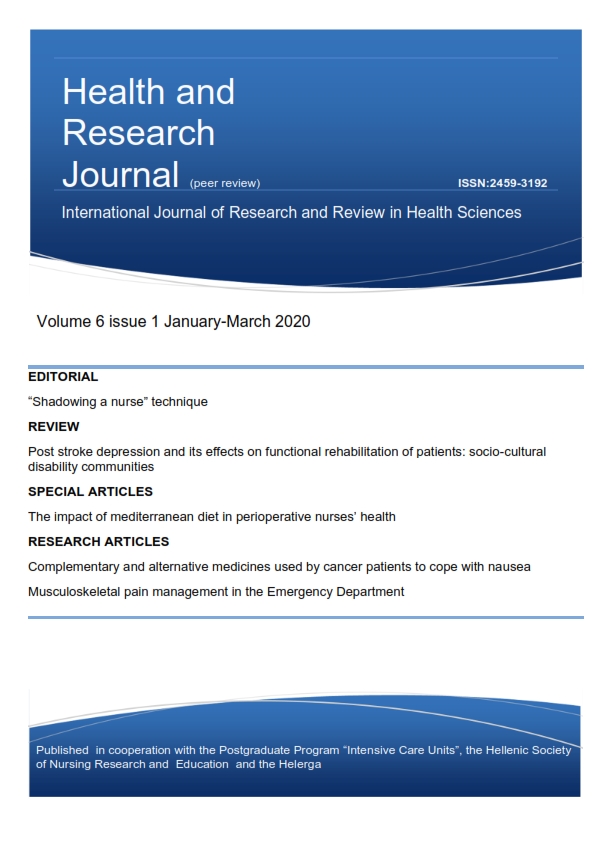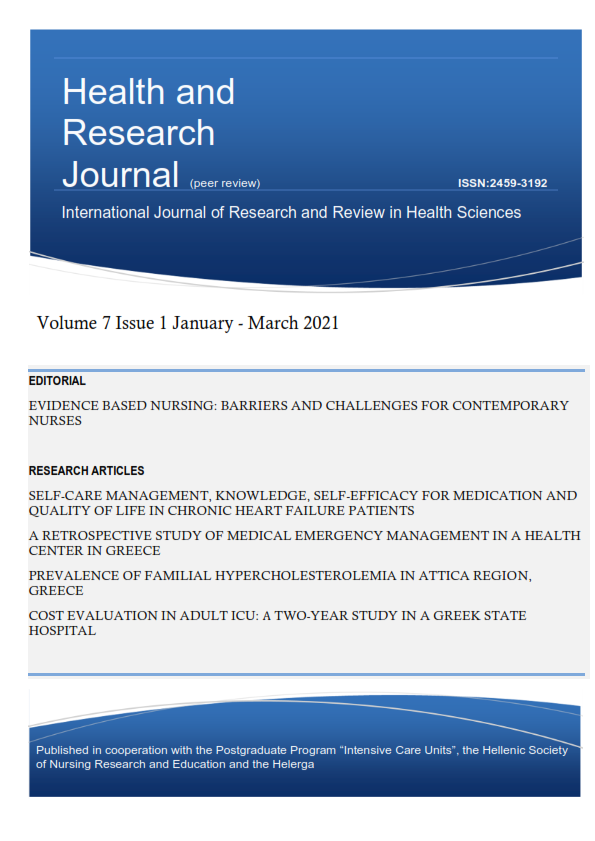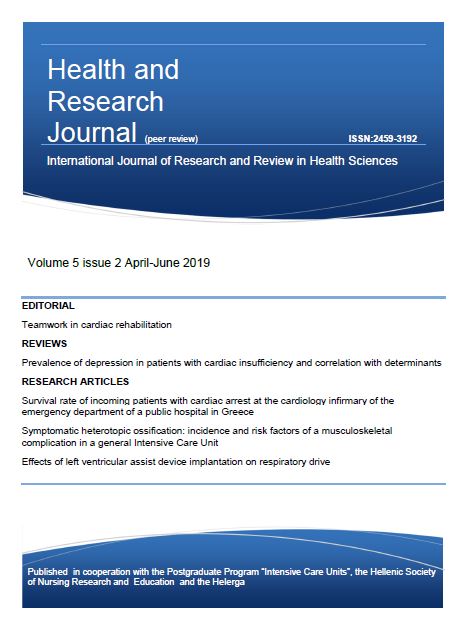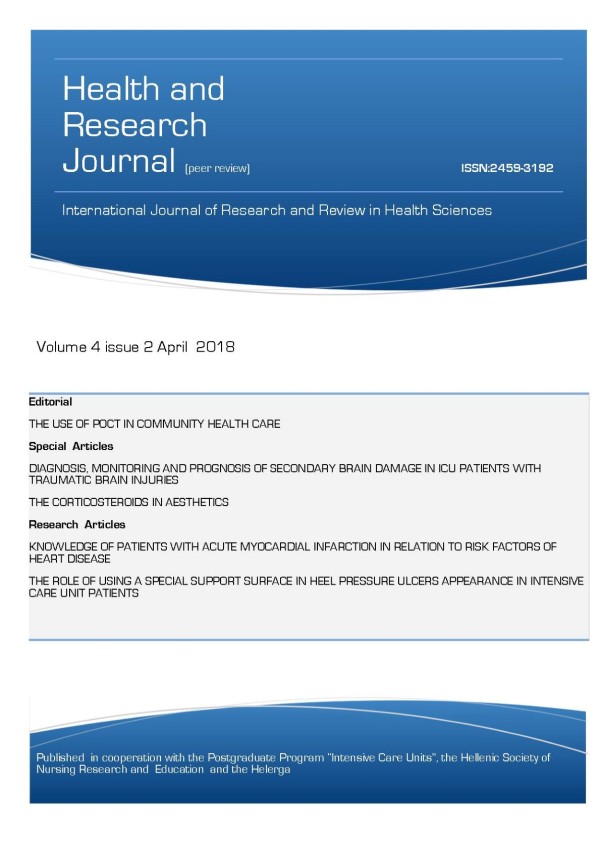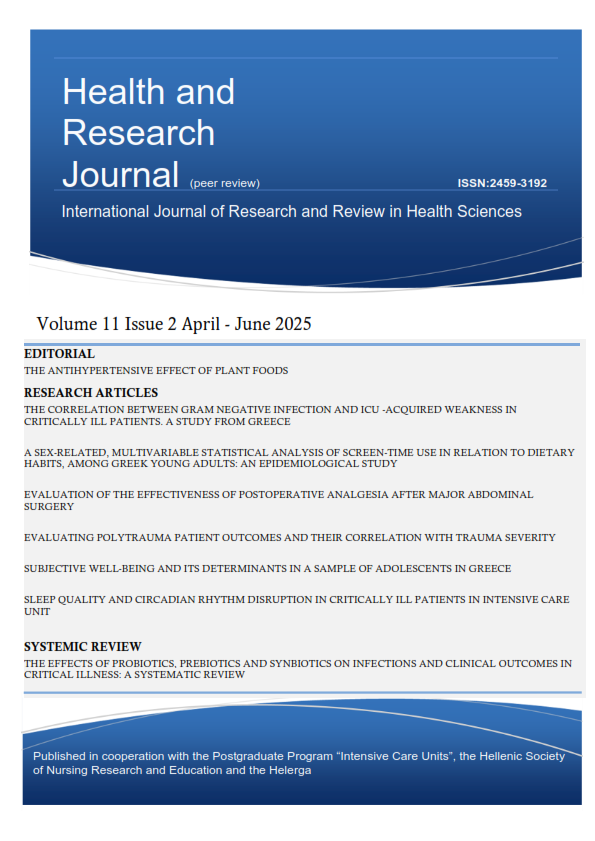Students’ assessment of master degree programme “icu and intensive nursing”

Abstract
Introduction: The term evaluation of educational work means the systematic review process in which the intended learning aims are achieved and identification of the causes that prevent their possible unsatisfactory achievement so that through the feedback process to improve the quality of education itself.
Purpose: The purpose of this study was to evaluate the Master degree program "ICU and Emergency Nursing" from the students of the A and C semester.
Material and Methods: The evaluation of the Master degree program "ICU and Emergency Nursing”, School of Medicine, University of Athens and Technological EducationaI Institute, Department of Nursing, Athens, was based on a questionnaire answered by the students before the exam. The questionnaire included questions concerning the views of students in relation to the courses, the teachers and the teaching method and certain demographic characteristics. 11 lessons of the first and third semester of the academic year 2015-2016 were analysed. Data analysis was performed by the statistical package for Social Sciences (SPSS) ver.19.
Results: From the A 'semester reviewed 43 students of whom 74,4% (n=32) were women, the first year of graduation ranging from 1986 to 2015 and 4,7% (n=2) has other postgraduate studies. The assessment of students for the first semester out of 10 with respect to the lesson includes values from 6.1 to 9.0, in terms of teaching includes values from 6.8 to 9.4 and in terms to the student of 7, 1 to 9.5. From C semester reviewed 30 students, of whom 76,7% (n = 23) were women, the first year of graduation ranging from 1988 to 2014 and 3,3% (n=1) has other postgraduate studies. The assessment of students for the C. semester out of 10 with respect to the subject includes values from 67.3 to 8.9, in terms of teaching includes values from 7.0 to 9.0 and to the student of 7, 4 to 9.3.
Conclusions: Students’ assesment is an important indicator of the effectiveness of teaching method and subsequent basic education system enhancement tool.
Article Details
- How to Cite
-
Kampisiouli, E., Emmanouil, A., Georgiadis, G., Kadda, O., & Papagiannopoulos, I. (2016). Students’ assessment of master degree programme “icu and intensive nursing”. Health & Research Journal, 2(3), 190–223. https://doi.org/10.12681/healthresj.19704
- Section
- Original Articles
Copyright notice:
Authors retain copyright of their work and grant the Health and Research Journal the right of first publication.
License:
Articles are published under the Creative Commons Attribution 4.0 International License (CC BY 4.0). This license permits use, sharing, adaptation, distribution, and reproduction in any medium or format, including for commercial purposes, provided that appropriate credit is given to the author(s) and the original publication in this journal, a link to the license is provided, and any changes are indicated.
Attribution requirement:
Any reuse must include the article citation and DOI (where available), and indicate if changes were made.



